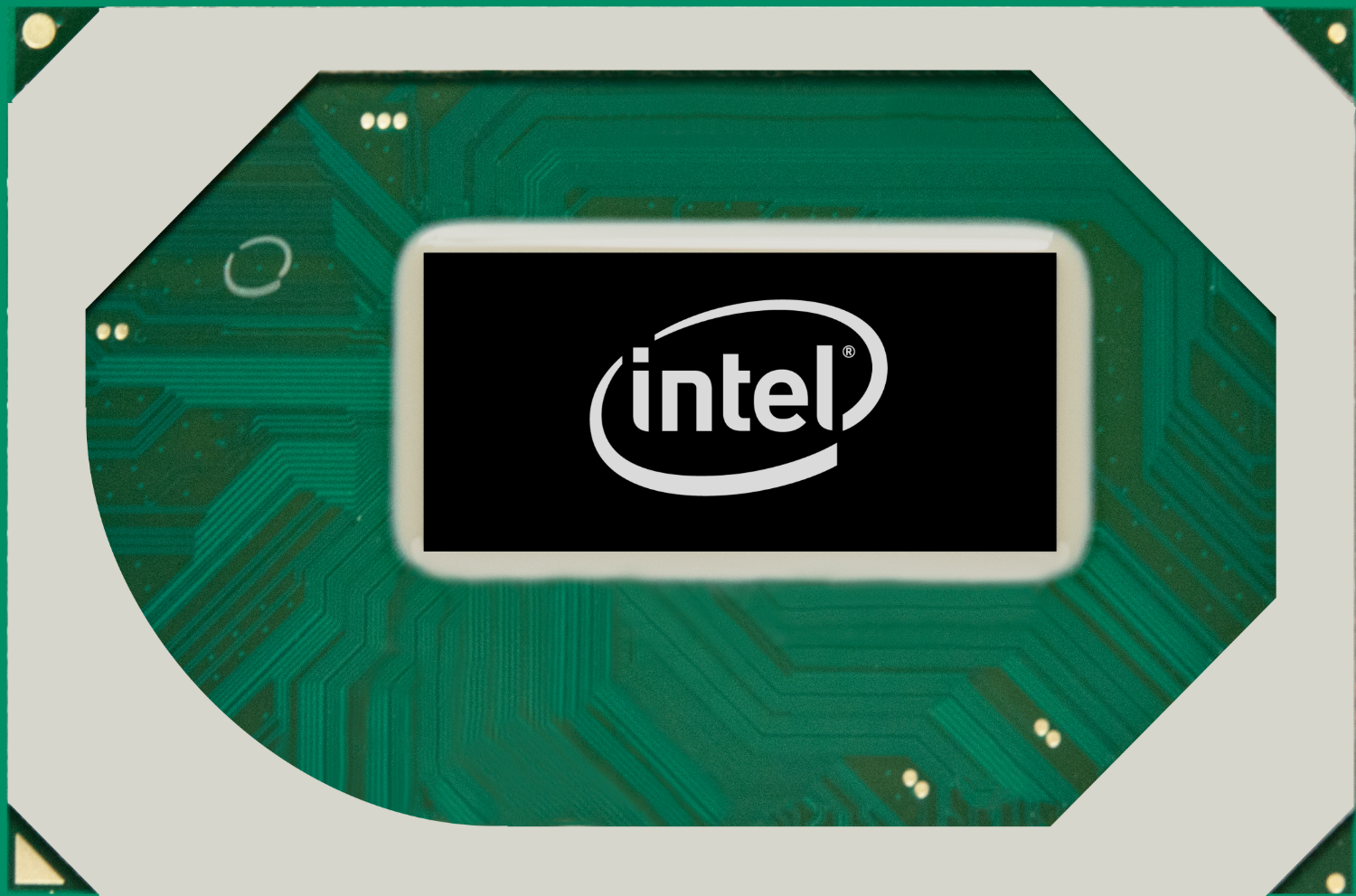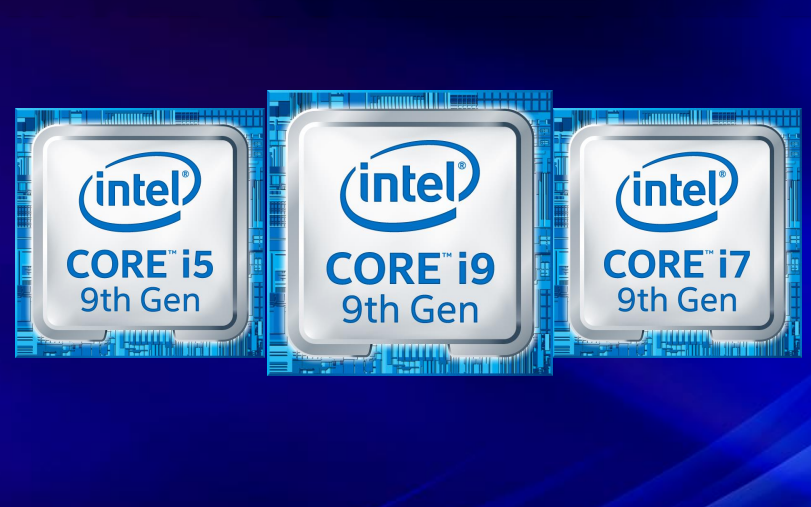Eight-Core CPUs Come to Laptops With Intel's 9th Gen H-Series Processors
Gamers and creative professionals will soon have a smorgasbord of new, high-end laptops to choose from, powered by Intel's 9th Gen H Series mobile processors. Long rumored, but launched today, this line of 45-watt, 14nm laptop processors is headlined by the chipmaker's first 8-core, 16-thread mobile consumer CPU, the Core i9-9980HK.
The new H-series chips are the first mobile chips that Intel has released with "9th Generation" branding (the 15-watt U and 4.5-watt Y series are still on 8th Gen), but they're still based on the same Coffee Lake Refresh, 14nm++ architecture that Intel used on last year's models. So these CPUs represent a small step forward while the world waits for Intel to finally mass-produce 10nm chips.
As we covered in a separate article, Intel also rounded out its 9th Gen desktop processor lineup, releasing new Pentium, Celeron and Core i3 Coffee Lake refresh chips, among others.
The biggest benefit of any Intel mobile CPU launch is not the often-modest performance improvements, but the fact that OEMs use the occasion to launch their new laptop lines. A number of laptop vendors are announcing new models today, and we expect every major manufacturer to have 9th Gen-Core powered gaming rigs unveiled, but not necessarily for sale, within the next few days and weeks.
Many of these new laptops will have attractive new designs or added features, such as high-refresh rate screens or 2.5 Gbe Ethernet that don't really have anything to do with Intel's new processors. All of the companies also have to launch their wares within the next few weeks in order to hit the critical back-to-school shopping window.
There are six SKUs in the H-series, which range from the high-end Core i9-9980HK, which is the only fully unlocked member of the family, to the Core i5-9300H and its four cores at the low end. All of the new processors support up to 128GB of RAM and work with Wi-Fi 6 (802.11ax), which will come on many of the new gaming laptops that are powered by these chips.
| CPU | Base Clock | Boost Clock | Cores / Threads | Smart Cache |
|---|---|---|---|---|
| Core i9-9980HK | 2.4 GHz | 5.0 GHz | 8 / 16 | 16 MB |
| Core i9-9880H | 2.3 GHz | 4.8 GHz | 8 /16 | 16 MB |
| Core i7-9850H | 2.6 GHz | 4.6 GHz | 6 / 12 | 12 MB |
| Core i7-9750H | 2.6 GHz | 4.5 GHz | 6 / 12 | 12 MB |
| Core i5-9400H | 2.5 GHz | 4.3 GHz | 4 / 8 | 8 MB |
| Core i5-9300H | 2.4 GHz | 4.1 GHz | 4/ 8 | 8 MB |
Intel also claims that the Core i9-9980HK can turbo boost up to 5-GHz on a single core, something that the Core i9-8950HK, last year's top model, couldn't achieve. Both the Core i9-9980HK and its locked sibling, the Core i9-9880H, benefit from Intel's Thermal Velocity Boost technology, which boosts clock speeds based on thermal headroom. Built more for creative professionals than gamers, the Core i9-9880H has the same 8 cores and 16 threads as the HK, but can't boost higher than 4.8 GHz.
Get Tom's Hardware's best news and in-depth reviews, straight to your inbox.
The lineup also includes one "partially unlocked" processor, the Core i7-9850H. This chip only allows you to reach as high as 400 MHz above the rated Turbo Boost speed, which is 4.6 GHz. So, with the right cooling, it too may be able to reach 5 GHz.
Intel boasts that the new 9th Gen CPUs are significantly faster than a three year old system running on a 6th Gen Core chip. In its internal benchmarks, which pitted a Core i7-9750H-powered laptop against a Core i7-6700HQ-enabled unit, the new model had 56% higher fps in WarHammer II, was 54% quicker in 4K Adobe Premiere video editing and scored 33% better in SYSmark 2018, a general performance benchmark.
Intel compared its current laptop benchmarks to a three year old model, because most consumers don't buy a new system more than once every three years. But it remains unclear how much tangible benefit you'll see when comparing a 2019-era laptop with 9th Gen Core to one from 2018 with 8th Gen Core. In the end, the biggest performance benefits may come from other components such as the discrete graphics card.
Avram Piltch is Managing Editor: Special Projects. When he's not playing with the latest gadgets at work or putting on VR helmets at trade shows, you'll find him rooting his phone, taking apart his PC, or coding plugins. With his technical knowledge and passion for testing, Avram developed many real-world benchmarks, including our laptop battery test.
-
BulkZerker 2.3-2.4 max sustained clocks. Wonder what the power draw will be for those boosts to 5.0Reply -
oldcracc Yikes, those power bricks are gonna be gigantic and heavy. Also can't wait to see how bad these thermal throttle lmfao.Reply -
Peterwolf What type of cooling can we expect. Dell & Apple and many other manufacturers have failed to provide adequate cooling at the cost of CPU throttling when things run hot. Especially these days with thin laptops with 3 main heat sources inside being CPU GPU & battery (Charging & Discharging).Reply
Apple failed even with aluminium chassis & cases. Dell dropped the ball with the Latitude e6540 Quad Core i7 with AMD Graphics they simply melted down. To many manufactures simply use the same cooling solution for an i7 rig. Using the same heat pipes & fan as they use for the i3 & i5 siblings.
If you want to use these for full on Gaming or Rendering you need 3rd party cooling to make sure you don't cook your new expensive rig. -
Thanks for the article ! (y)Reply
I wonder how much the flagship SKU might cost (the Core i9 9980HK) ? Can't overlook any heat/thermal issues though. -
germanium I would think that in a laptop environment that a 6 core processor will offer equivalent performance or better as it would not throttle as soon as an 8 core would & even when it does throttle it won't throttle as low. Most tasks performed on a laptop would benefit more from extra clock speed than extra cores.Reply -
jsmithepa Don't get too excited. All that heat and power have to be dumped somewhere somehow, and yes, pay attention to throttling. Got disposable income to live on the breeding edge, go for it.Reply -
alan.campbell99 My first thought with any new Intel CPUs for now, particularly on 14nm, is can they supply them?Reply


